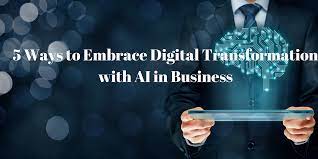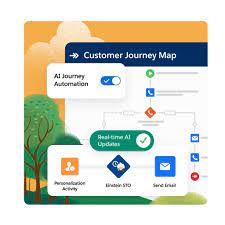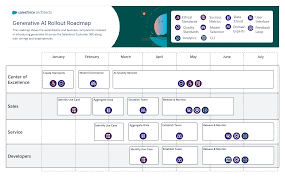To understand the impact of AI on the workforce, it’s crucial to first understand what AI is and how it works. Following steps to embrace AI put you on the path to success. AI refers to systems that can perform tasks typically requiring human intelligence, such as recognizing patterns, learning from experience, and making decisions. AI algorithms can process vast amounts of data, analyze it, and draw conclusions much faster than a human ever could.
Fear often surrounds AI, painting pictures of job-stealing robots and rebellious machines. But the AI revolution is less about replacing us and more about reinventing us. And by “us,” I mean those willing to buddy up with their binary comrades.
Historical Innovations we Feared:
Early automobiles were noisy, unreliable, and dangerous. They were also seen as a threat to the horse-drawn carriage industry.
People were afraid of the potential dangers of electricity, including fires and electrocution. Some also believed it was unnatural and harmful to health.
Some people feared that television would lead to a decline in reading and social interaction. Others were concerned about the potential negative impact of television programming on children. Okay, so maybe some of our fears were realized.
Many people resisted putting toilets in their houses because they thought it was unsanitary. Some of the early adopters built their bathrooms so that they could only be entered from the outside of the house. Can you imagine such a thing today?
Many people saw personal computers as expensive, impractical toys. They did not believe that they would become an essential tool for work and communication. I worked at Sperry Univac, one of the largest manufacturers of mainframe computers and there was huge resistance to mini and microcomputers. And look what happened micro computers are everywhere and there are very few mainframe computers being manufactured these days. A lot of us came of age in a time when a Computer Science degree was only going to lead to a career writing game software. But those who embraced it are the technology leaders of today.
Early versions of the Internet were slow, unreliable, and difficult to use. Some people feared it would be used for criminal activity or the spread of misinformation.
Resisting Technology Does Not Impede Progress
All of those technologies advanced and became commonplace no matter how much they were resisted. The same is going to happen to AI. It is advancing at a record rate. And no matter how hard you resist it, it will become commonplace soon. So, you might as well embrace it and start reaping the benefits.
This isn’t the initial occasion we’ve engaged in this dance. Consider Alexander Graham Bell’s initially ridiculed creation: the telephone. Back then, skeptics were adamant that voice-transmitting devices were a passing trend. Fast forward, and attempting to navigate the contemporary business landscape without a phone is akin to propelling a canoe with a single blade of grass—ineffective and somewhat ludicrous.
Steps to Embrace AI
Harmonize and consolidate all your data for AI visibility. For AI to operate efficiently, it requires access to the same customer data as you. The challenge lies in the dispersion of this data across diverse internal and external systems, employing varying formats. Employ technology that standardizes, or “harmonizes,” disparate data sources into a singular, coherent stream of clean data. This guarantees that AI possesses a comprehensive understanding of your customer. Salesforce Data Cloud is the perfect tool for this step to embrace AI.
Safeguard your customer data. A significant number of customers are apprehensive about entrusting companies with their data, especially with 71% of IT leaders foreseeing data security risks from generative AI. Prioritize data security and privacy before incorporating AI, utilizing industry-standard security measures such as encrypting prompts, removing personally identifiable information, and refraining from storing data beyond your CRM. Salesforce Einstein AI puts trust first. Trusting your data and ensuring your customers’ entrust you with their data is one of the key steps to embracing AI.
Centralize AI tools within your CRM. Having tidied up your customer data for AI utilization, streamline your tech infrastructure by integrating AI tools within your CRM. This ensures that your data and AI capabilities are housed in a centralized location, enhancing efficiency for sales representatives by providing insights and generative tools within the same system they already utilize. Additionally, it reduces costs associated with maintaining a cumbersome tech stack.
Ensure ethical AI usage. With 54% of sales professionals emphasizing the importance of ethical guidelines for generative AI, implement checks and controls to mitigate the risks of misinformation, toxicity, and bias. Incorporate human oversight by having individuals review results and provide feedback to refine models.
How to prepare for Artificial Intelligence:
The primary skill for aspiring AI engineers is programming. Mastery of programming languages such as Python, R, Java, and C++ is crucial for building and implementing AI models. The career opportunities in the field of artificial intelligence are growing rapidly and just one of the steps to embrace AI.
How to prepare your organization for AI:
Beyond securing employee buy-in, initiate small-scale adoption of AI within your organization. Given the evolving nature of AI, test various tools and applications within specific departments to ensure that AI contributes to the intended success.
Prospect and Account Research:
Automate research on prospects and accounts by summarizing CRM records to gauge deal likelihood and identify competitors. Utilize real-time data for current news updates. Streamline processes by having AI, such as Einstein, update lead or opportunity records, eliminating manual data entry.

AI won’t replace humans; rather, those who incorporate AI into their processes gain a competitive advantage. While apprehensions about AI persist, history shows that technological advancements eventually become integral to daily life. Embrace AI as a co-pilot, recognizing that adaptability is key to thriving.
The world is evolving rapidly, with AI playing a transformative role. Despite concerns about AI’s impact on jobs, it has the potential to empower and simplify our lives. Rather than replacing humans, AI can automate routine tasks, allowing individuals to focus on more creative and value-added work. The future lies in human-AI collaboration, requiring us to prepare for a shift in roles and responsibilities. As AI continues to develop, the emphasis will shift from doing the work ourselves to managing AI systems effectively. It’s essential to embrace this change and consider what tasks to relinquish in favor of a more focused and efficient future.
Tectonic is embracing ai and is here to help you embrace it as well. Contact us today.












